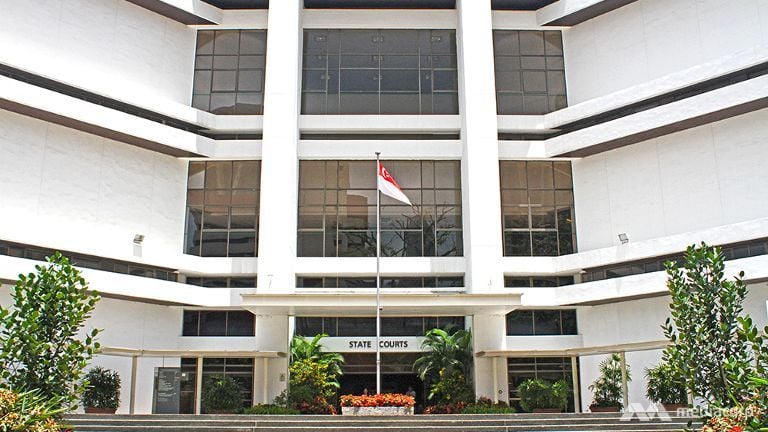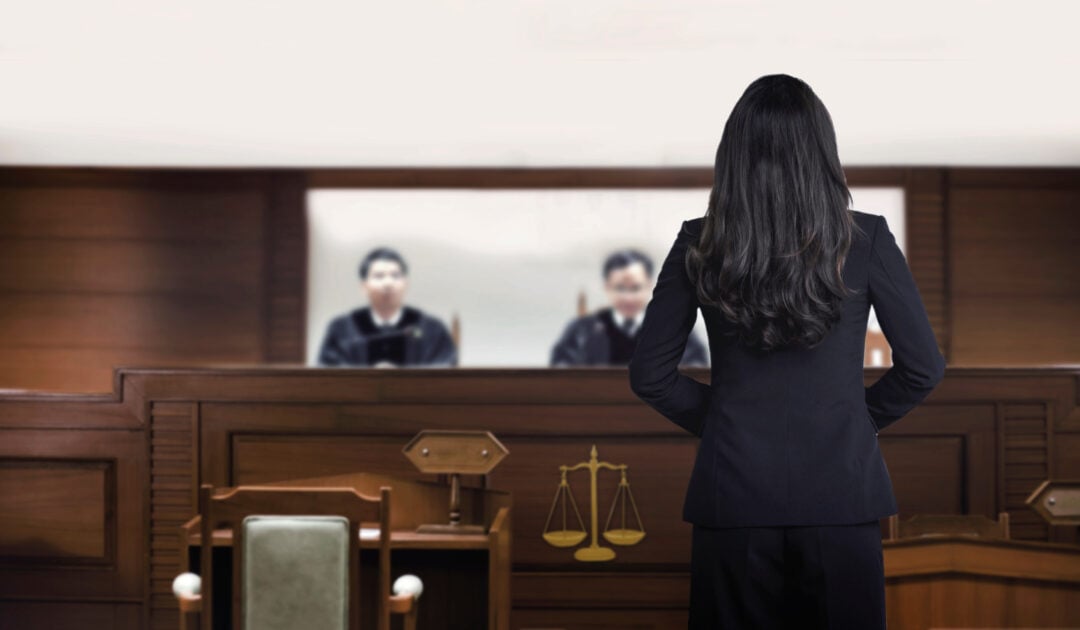In what is possibly a unique case regarding Additional Buyer’s Stamp Duty (ABSD), a man took his ex-wife (joint trustee) and older son (beneficiary) to court early this year to prove that a Trust Deed for a property he jointly took with her for their son in 2015 was actually a “sham to avoid paying ABSD”.
In court, the ex-husband claimed that the property in question, a freehold condo located in District 15 (East Coast, Marine Parade), was entered into a joint trust because:
- He was misled by his ex-wife
- He made a mistake (ie. he didn’t understand the legal ramifications of signing the trust)
- His wife exercised undue influence on him (to sign the trust)
- His wife made an unconscionable conduct and/or that the Trust Deed was an unconscionable transaction
- The Trust Deed was purchased illegally to evade ABSD and was never intended for their son
If proven true, he sought to:
- set aside the Trust Deed
- have his ex-wife and him declared as the legal and beneficial owners of the Trust Property, and
- have his ex-wife and/or son hold the Trust Property on resulting trust and/or constructive trust for him and his wife.
Resulting trust implies a reverse where in this example, his son (beneficiary) holds the property in trust for his father instead (because his father had never intended for his son to be the beneficiary or that his son had not paid for it).
Constructive trust is where the court awarding the party who should receive the remedial benefit become the beneficiary instead (the father and mother in this case).

How it all started
The husband and wife got married in 1999 and have two sons. Before their marriage deteriorated, they were living in a landed property, also in the same District 15 neighbourhood.
According to court documents, the husband and wife were extremely well educated and had, at one point, held high positions as senior civil servants in different government sectors.
In early 2015, as their children were minors, they discussed setting aside funds for their children’s tertiary education and other needs. They felt that purchasing properties in trust for their children would ensure there would be sufficient funds to meet such needs.
They met with a real estate agent to view several apartments and settled on the Trust Property, which cost S$1.49m. The agent then prepared a cash flow analysis of various payments required to buy it.
As the property was to be bought on trust for his client’s oldest son, the agent’s analysis did not include ABSD. If the husband and wife had bought the property under their own names, they would have had to pay 7% in ABSD, or S$104,300, since they were Singaporeans and had already jointly owned a home.
The Trust Deed was executed as an irrevocable trust for S$1.55m on 2 March 2015, with their older son as beneficiary with husband and wife as trustees.
When their marriage broke down in 2020, the mother took her two sons and moved to the Trust Property to live. It is understood that their existing landed property has since been sold.
Around early November 2020, she filed for divorce in the Syariah Court. About a week later, the husband’s lawyers issued a letter to challenge the validity of the Trust Deed.
Counter-arguments
When presented with the claims from her former husband in court, the wife (and her older son, both of whom were defendants) argued that there was a common intention to buy the Trust Property to benefit their son.
So the non-payment of the ABSD was simply a follow-through of that intention and demonstrated no dishonesty on the trustees.
Regarding the husband’s four other initial claims that he was misrepresented to sign the deed from undue influence and that he didn’t understand the ramifications, he did not have the necessary facts to support them.
This meant that the Trust Deed was a bona fide document and wasn’t a sham.
Furthermore, due to the court action, both mother and son counterclaimed to remove the husband as trustee of the property.

Court’s arguments regarding ABSD evasion claim
Based on the husband’s affidavit of evidence-in-chief (AEIC), the judge highlighted that on the first day of trial, the husband claimed that his former wife had said that a 12% ABSD amount of S$178,000 was payable and that she was not willing to pay for it.
However, on the fifth day of trial, the husband’s lawyer admitted an error that the correct ABSD rate in 2015 was, in fact, 7%, not 12%.
While the mere correction from S$178k to S$104k seemed like an arithmetic mistake, the judge said it cast doubt on the husband’s claim.
First, did the wife do her research and say that “a 12% ABSD amounting to S$178k was payable” in the first place? There wasn’t any evidence to support this.
Second, saying that S$178k was such a huge amount that it would push the trustees to sign a sham document was further weakened when the ABSD was, in fact, lower at S$104k.
Furthermore, whether it’s S$178k or S$104k, the judge argued that there was no evidence to show that both the husband and wife couldn’t afford to pay for it.
He further argued that throughout the purchasing process, both husband and wife acknowledged and served as trustees when they signed the Option to Purchase (OTP) and Sale and Purchase Agreement (SPA).
They even signed a declaration to IRAS in 2017 to attest that the Trust Property was acquired under trust and that no ABSD was payable.
This demonstrated a consistent pattern of behaviour by both husband and wife where they understood their roles as trustees.

Further testimonies from the Trust Deed Lawyer and Property Agent
In court, the lawyer who drew up the Trust Deed testified the following: “the heart of the issue is always does the client understand what they are doing when they are signing this document” and that “the emphasis is always … on the understanding … that they must understand what they are signing up for”.
The property agent who drew up the cash flow analysis also testified the following:
Court: … The question is: were you told that the property was being bought on trust, and [the defendants’ lawyer] is asking why would you as an estate agent leave ABSD as 0 in this email unless you were told by the client they were buying it on trust?
Agent: (Pause) I was told that they want to create a trust, okay? And I don’t know whether they duly go ahead. So when I follow up, I do the progressive payment, so I assume there will be no ABSD if they create a trust.
[Defendants’ lawyer]: [Agent], I think His Honour has taken it as far as possible, but let me just tell you this. They saw the lawyers after your email. They saw the lawyers you can take it from me on 2 March 2015. Your email is dated 21 February 2015. So it must be that by this time, by 21 February 2015, you already knew that they were setting up a trust in favour of their son, which is why you didn’t indicate ABSD in your cash flow analysis. Would you agree or disagree? “Yes” or “No”?
Agent: Yes.

Judge’s findings and ruling
The judge also brought up a few other findings that further cast doubt on the husband’s claims and/or his conduct:
- The husband had not indicated that the Trust Deed was a sham when he first issued legal letters on the division of matrimonial assets in September and October 2020. It was only after receiving notice of divorce proceedings from his former wife in November 2020 that he claimed that the Trust Deed was “voidable”.
- In the October 2020 letter, the husband requested that for any rental money obtained from the Trust Property, as both trustees were entitled to make a decision for their son’s benefit, he and his wife should have a legal share of the rental proceeds to an amount equal to 50% each.
- The husband also sought to portray himself as someone who only did his wife’s bidding. He claimed that he “was never the party who acted on his own accord without his former wife’s directions and/or agreement.” Evidence given included messages where the wife directed him to pay his income taxes.
- This was counter-argued when the wife testified that her former husband had never taken her words at face value and would demand proof before he was convinced.
- His older son also testified that his father had anger management issues and would “often vent his frustration” on them.
- The following admission from the father’s counselling form submitted to the Syariah Court had this statement: “… I have made life difficult for my wife with my jealousy, controlling ways, my trust issues, my own anger management issues, my lies and double standards … I revert to my jealous, controlling ways and I will throw accusations at my wife that are all unfounded …”
Based on the evidence, in his judgement in August 2022, the judge concluded that the Trust Deed was a bona fide document and that the husband and wife had signed it with the common intention to benefit their son, and not to evade ABSD.

Finally, as to the mother and son’s counterclaim to remove the husband as trustee, the judge said that removal depends on whether the trustee has acted in a manner that endangers the trust property in terms of honesty, and proper capacity to execute his/her duties and reasonable fidelity.
He ruled that given the husband’s claims that the Trust Deed was entered to evade ABSD and therefore the property belonged to him and his former wife, he had acted in breach of his duties as a trustee.
The plaintiff (husband) had also placed his personal interests in actual conflict with his son’s interests as beneficiary. His repeated demands for a half share of rental proceeds were also in direct breach of the Deed.
The judge thus ruled that the husband was unsuitable to be a trustee of the Trust Property.
–
–
Have you had any experiences in paying (or not paying) for ABSD? Let us know in the comments section below.
If you found this article helpful, 99.co recommends You can ‘lose money’ when decoupling to buy a second property. Here’s why and What you need to know about the new ABSD (Trust): 35% rate + conditions for remission.
The post Man claimed S$1.55m Property Trust Deed a “sham to avoid paying ABSD” and took ex-wife (joint trustee) and son (beneficiary) to court appeared first on .











